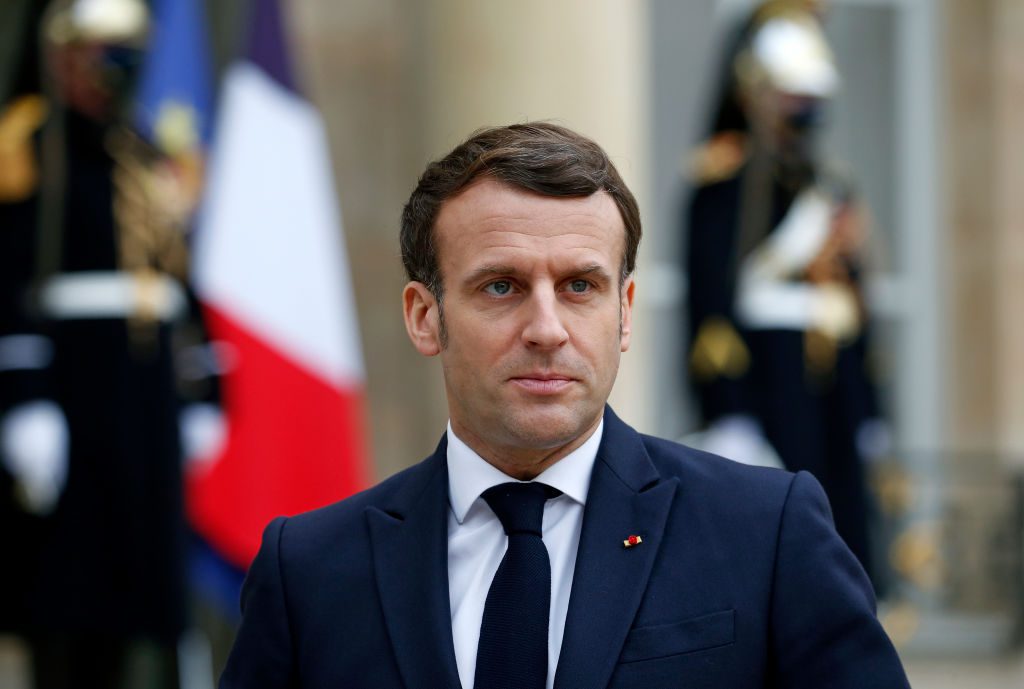France’s Fight Against Islamism Becomes Another Cynical Crackdown

The beheading of Samuel Paty in October of last year has had a long-lasting effect on French politics. Paty, a civics teacher, was stabbed in cold blood by an Islamist terrorist as a reprisal against his having shown the Charlie Hebdo caricatures of the prophet Mohammed in class.
In the past, when there were terrorist attacks in France, French politicians would call for unity, promise to defend freedom of expression, and then quickly move on to their latest social welfare proposal threatening to drain the country’s coffers. This time would be different. French President Emmanuel Macron had been recovering from very low approval numbers in 2019 (as low as 20 percent), and was now hovering around 40 percent due to his COVID-19 management. Strange as that may seem, despite very harsh coronavirus restrictions, the president had impressed the populous with his crisis response and efforts at securing considerable aid in the European Union’s stimulus package. So as to make sure those recent gains weren’t erased in favor of his right-wing rival Marine Le Pen, Macron increased security measures following the Paty killing.
The French government introduced a security law that left civil liberties advocates in shock. The bill strengthens the powers of local police and bans filming law enforcement, punishing it with a fine of up to €45,000 ($54,000). This sparked major protests in all French cities, many of which turned violent. The government promised to rework the provision, but opponents say the changes were merely technical and innocent people will still get hurt. With the bill currently in the French Senate, civil liberties activists have little hope that their concerns will be heard.
With all their grandstanding against the nationalism of Donald Trump, one would think the French would be more mindful of the concerns of the left, which has traditionally gotten it right on law enforcement and other security and surveillance powers. However, Macron wants to have his cake and eat it too. By giving up on his initially ambitious economic reforms as economy minister and by scrapping the local residence tax, he’s attempted to corner the left, all while appealing to the right with his support for the police and his anti-Islamist rhetoric.
In a recent TV debate on France’s public broadcaster France2, Interior Minister Gérald Darmanin accused Marine Le Pen of being too soft on Islam. “You’ll need to take some vitamins, I don’t find you tough enough on these issues,” Macron’s minister said. He continued: “If I understand this correctly, you are not even ready to legislate on religion, and seem to believe that Islam is not a problem. This will disappoint many of your voters. …Madame Le Pen says it’s not a problem of religion, it’s a problem of ideology.” The National Rally (formerly the National Front) leader appeared stunned: “I am not going to attack Islam,” she said, “it’s a religion like any other. I am fundamentally attached to our French values, so I will completely defend their right to organize and to practice their religion. That’s my opinion.”
Following the broadcast, both the prime minister’s office and the Elysée Palace were forced to backpedal the minister’s statements, but it’s become very clear that Macron is not confident about his chances of reelection next year. That is, unless he convinces France’s nationalist voters that they don’t need to worry about his management of security issues. Darmanin in particular has become a hardliner on the question of religion, creating ambiguity about what exactly France’s relationship with secularism is.
The interpretation of “laïcité” (secularism) has been a pervasive problem in France. In an effort to fight extremism, the right wing has for many years used it as a premise to demand the absence of religion, as opposed to the separation of church and state. Mayors in the south of France have long attempted to ban the so-called “burkini” (a female swimsuit that covers the whole body, in accordance with the desire to not be revealing). In primary and secondary schools, the use of the headscarf is against the law. Emmanuel Macron is now joining this tradition.
Rather than standing on “Republican” values such as freedom of conscience and of individual liberty, he’s reverting to petty lawmaking to solve the very real issue of Islamic extremism. You cannot on one hand proclaim yourself to be a beacon of free expression, yet prevent your own citizens from filming in a public setting.
Stuck between a flip-flopping president and a challenger who simultaneously claims to respect religious expression while proposing a ban on all ostensible signs of religion, France is setting itself up for yet another acrimonious presidential election. The entertainment value for those outside of the country will be high, but for the French themselves, it will be just another lost year.
Bill Wirtz comments on European politics and policy in English, French, and German. His work has appeared in Newsweek, the Washington Examiner, CityAM, Le Monde, Le Figaro, and Die Welt.